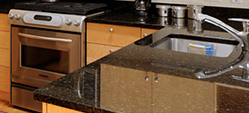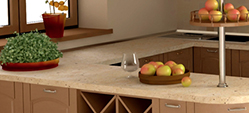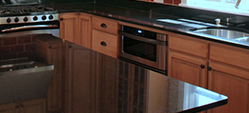For some having a wooden worktop in their kitchen is an absolute must.
For others – the rumours or high maintenance and water damage put them off before they have even begun to look into it a bit deeper. So to help you out – we have put together a guide on the options to maintain and manage wooden worktops so that you can get years of use without too much hassle.

Types of treatment for wooden worktops
Oiled Worktops: Danish Oil is generally referred to as the best treatment to finish off a kitchen worktop made from wood. It will bring out the natural lustre of the wood while providing excellent protection. A lot of kitchen buyers don’t know this but most kitchen worktop suppliers provide their wooden worktops unfinished. It is up to you the consumer or your kitchen fitter to apply a protective finish before installation and regularly thereafter.
If regularly maintained, oiled kitchen worktops made from wood will look good for many years to come. With Danish Oil, you get a food safe, water resistant finish. It is generally recommended that you regularly re-apply oil to the kitchen worktop during the first 6 weeks after the wooden worktop has been installed. After this, you should re-oil your wooden worktop every 3 months to ensure that the surface remains hydrophobic and resilient.
Lacquering Hardwood Kitchen Worktops
Lacquering a wooden worktop can give a very shiny finish. This considerably shinier option will still retain the natural look and aesthetic of the wood but is significantly more reflective than oiled worktop options. A benefit of lacquering wooden worktops is that on top of full moisture resistance, lacquered surfaces are also much more resistant to scratches and abrasions.
While lacquering does not require the same amount of maintenance as an oiled worktop, it does need to be cleaned regularly. If you ever need to re-lacquer your wooden kitchen worktop, you will need to completely sand down the wood first. We would generally recommend that this is handled by a professional.
Tung Oil: Formed from the pressed oil of the Tung Tree Nut, this is a penetrating oil that has multiple uses as a hard wearing finish and can add a golden tint. However because this oil is derived from a nut, it can cause allergic reactions from those who suffer strongly from nut allergies.
Linseed Oil: Also known as flaxseed oil, linseed oil is a penetrative oil that we would not recommend as it retains a sticky element and takes a long time to permanently dry. It is not hard wearing and it can encourage mildew growth (which is one of the big scare factors that people have about wooden worktops).






















